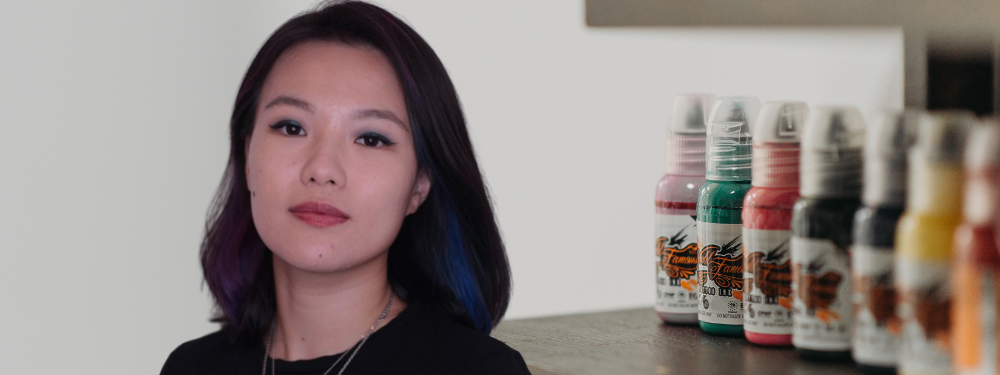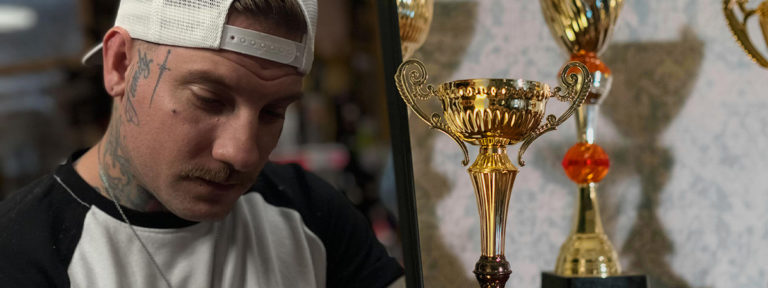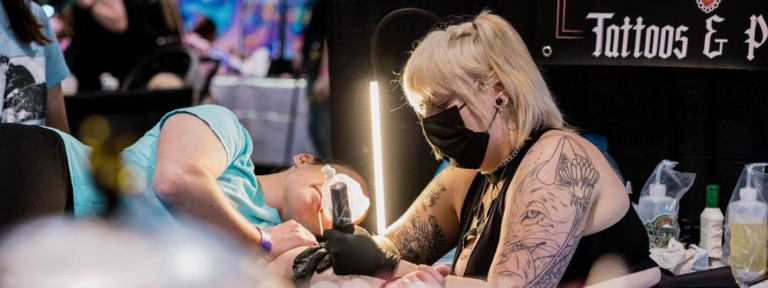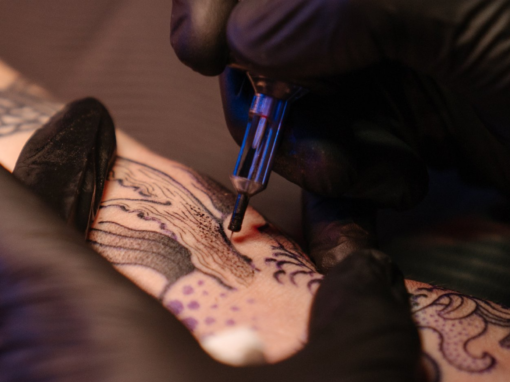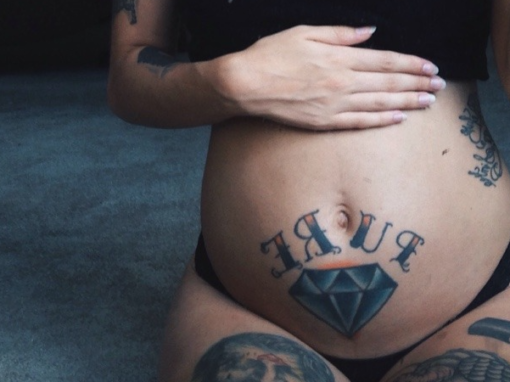Meet Zezi, a talented tattoo artist and mentor. With years of experience in the industry, she has honed her craft and developed a unique teaching style. In this interview, she kindly shared her experiences and insights about mentoring budding tattoo artists.
Discover her journey, her approach to teaching, and her valuable tips for aspiring tattoo artists. Let’s explore the world of tattoo apprenticeship from a mentor’s perspective with Zezi!
Getting to Know Zezi

Zezi’s Instagram and Finer Things Tattoo
Zezi is a talented tattoo artist and dedicated mentor known for her structured approach. She discovered her passion for art at a young age and spent years perfecting her skills in painting and drawing. Her hard work paid off when she earned a Master of Arts degree from Pratt Institute.
“Before joining the tattoo industry, I was an art teacher in New York for seven years. During that time, I completed my tattoo apprenticeship while still teaching. For the last year and a half of my teaching career, I balanced my apprenticeship on weekends. After moving to Seattle, I opened my own tattoo shop and began mentoring apprentices, and currently, I have five apprentices under my guidance.”
— Zezi to InkMatch
In 2022, Zezi opened Finer Things Tattoo Studio, specializing in fine line and illustrative tattoos. She aims to provide a clean and welcoming environment for her clients and create unique custom designs through personalized consultations.
Over the years, Zezi has developed her own approach to tattoo apprenticeship and has helped many aspiring tattoo artists fulfill their dreams. She has kindly shared her experience, and we are sure it will be useful to both trainees and mentors.
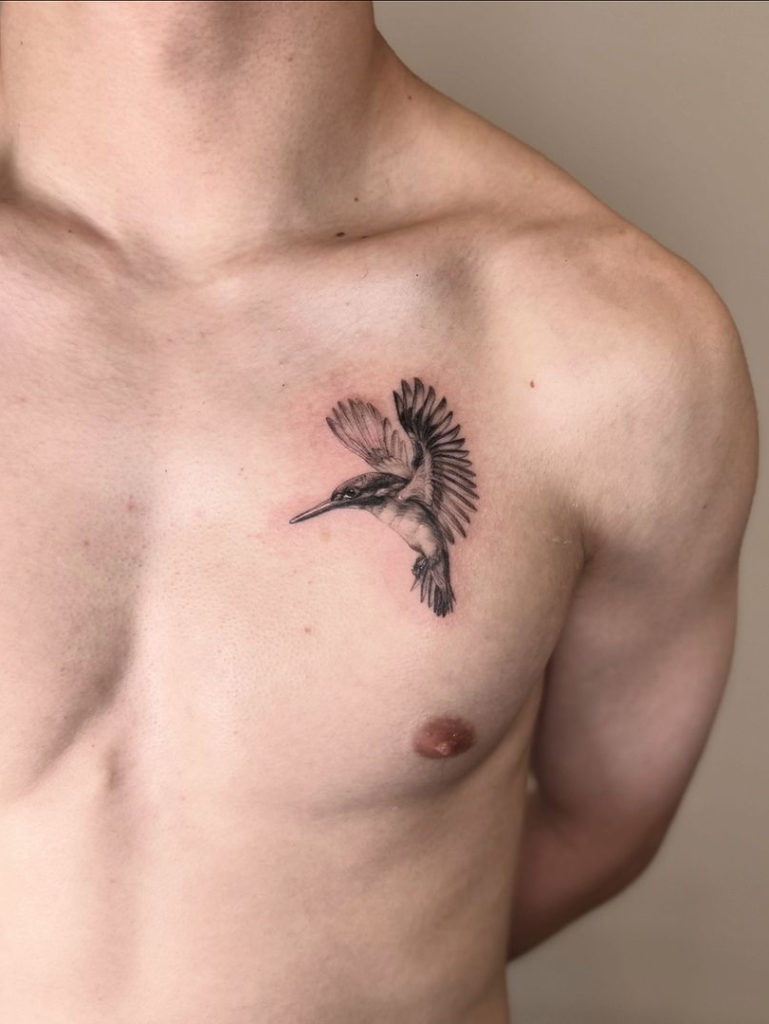
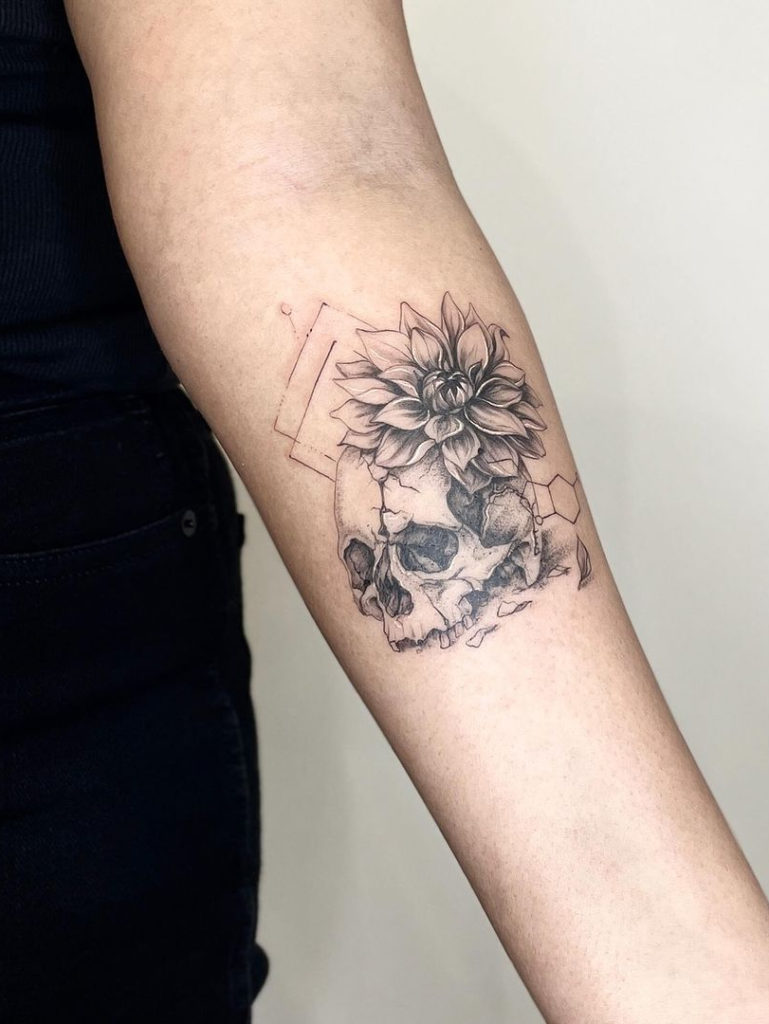
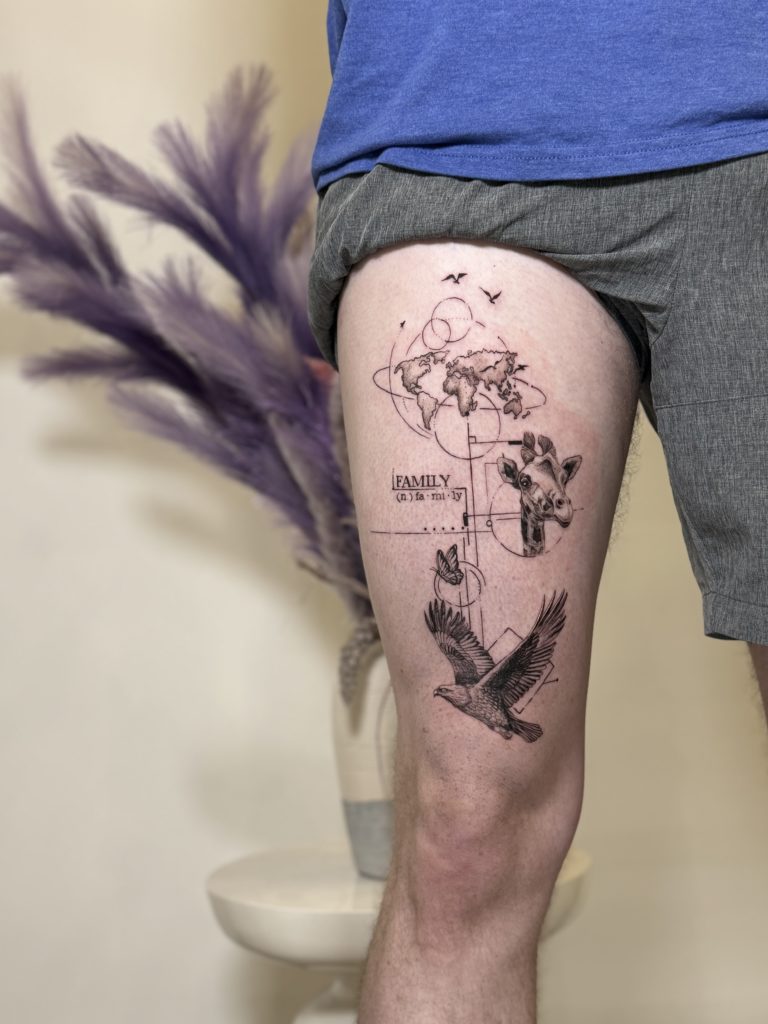
Works by Zezi
Three Different Kinds of Apprenticeships
In our conversation, Zezi highlighted three types of tattoo apprenticeships in the US — traditional, paid, and tattoo institutes. Let’s take them one at a time.
1. Traditional apprenticeship
These apprenticeships do not include a charge for tuition, but instead, students help out in the studio. This usually includes cleaning and helping other artists, and the length of apprenticeship can vary from studio to studio.
“In New York, I heard about a very traditional studio where apprenticeships can last up to two years. They also may offer you a part-time position after you meet their timeline. I understand this process because they are teaching you, and they need free labor in exchange.”
— Zezi to InkMatch
2. Paid apprenticeship
In this model, apprentices do not have to clean or do receptionist work. Instead, they pay tuition for structured learning. As Zezi mentioned, “In my studio, I don’t need them to do any free labor work, it’s a paid apprenticeship.”
“As a mentor, I provide clear, weekly learning objectives and share the timeline for what we will learn each week. This includes the criteria and the specific goals we aim to achieve,” Zezi on her approach to teaching. After six months, those who meet all criteria are guaranteed a part-time job in her studio.
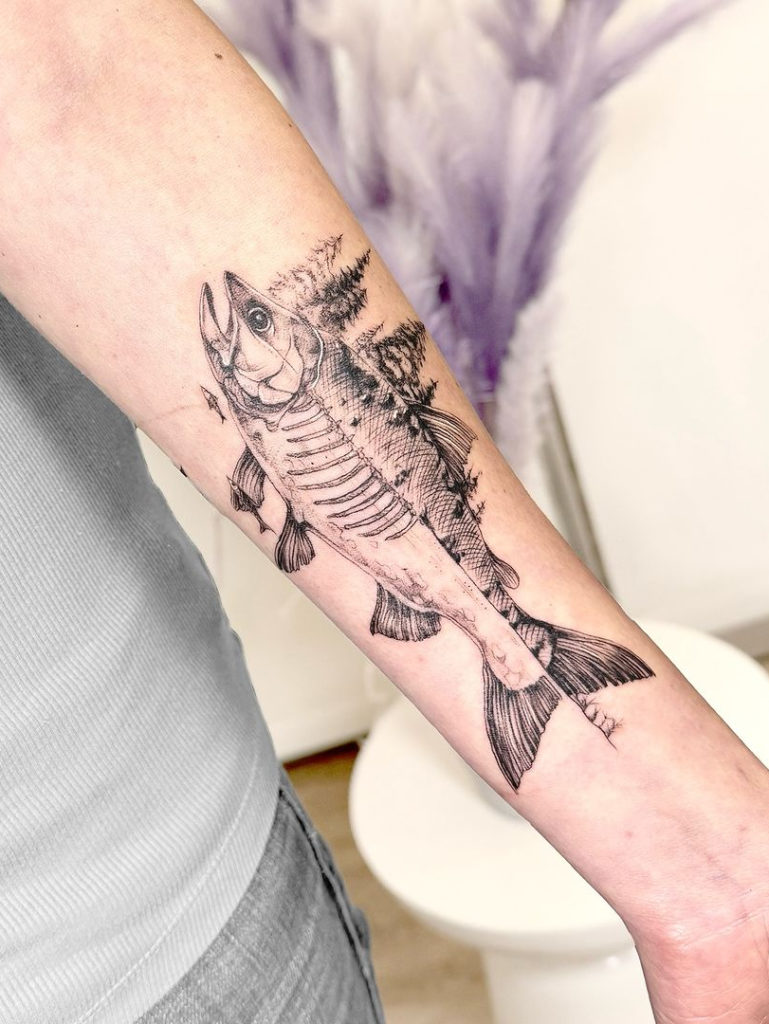
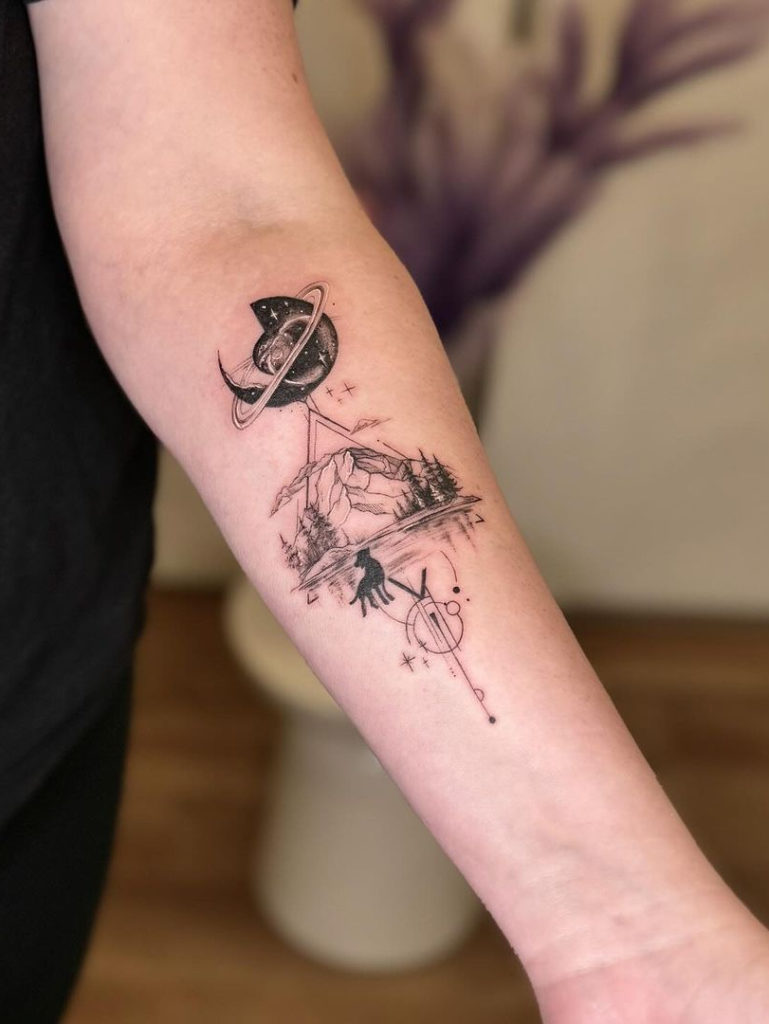
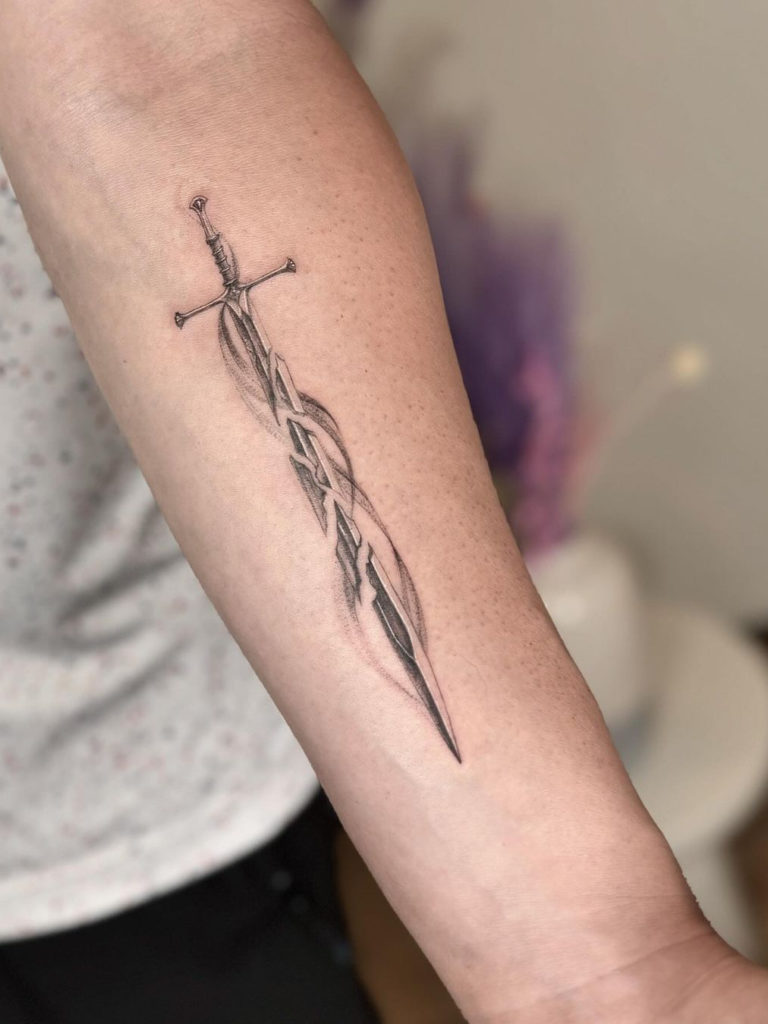
Works by Zezi
3. Tattoo institutes
These are specialized schools for tattoo artists. Tuition fees there are usually quite high and many find this to be a significant barrier. “Honestly, when I started learning tattooing, I was already a full-time art teacher in New York. Despite having some savings, the costs were still too high. It’s a big investment at the beginning,” Zezi notes. Consequently, this type of apprenticeship is much less common.
Overall, when choosing a tattoo apprenticeship, consider what aligns best with your learning style, financial situation, and career goals.
Finding the Right Tattoo Mentor: Key Insights
Choosing the right tattoo mentor is just as important as the type of apprenticeship. Zezi shared with us a few key points that might become your cornerstones on the way to pursuing successful mentorship.
- Do your research
Firstly, Zezi emphasizes that research is essential, especially for paid apprenticeships. Find out what knowledge and skills you will gain during the training.
“The style I use is very structured, and I think it’s important to ask your mentor if you can see the curriculum. They might not provide it immediately, but it’s essential to review it. You should also inquire about the tuition cost and what supplies are included. For instance, with my program, tuition covers the curriculum and all necessary machines and supplies.”
— Zezi to InkMatch
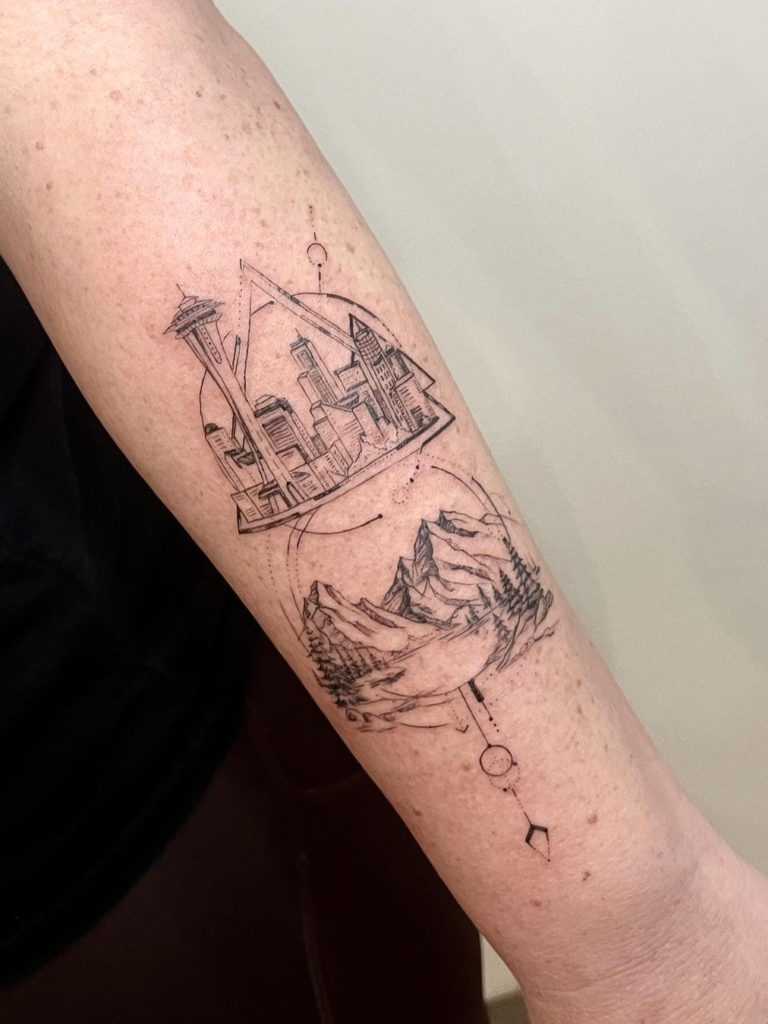
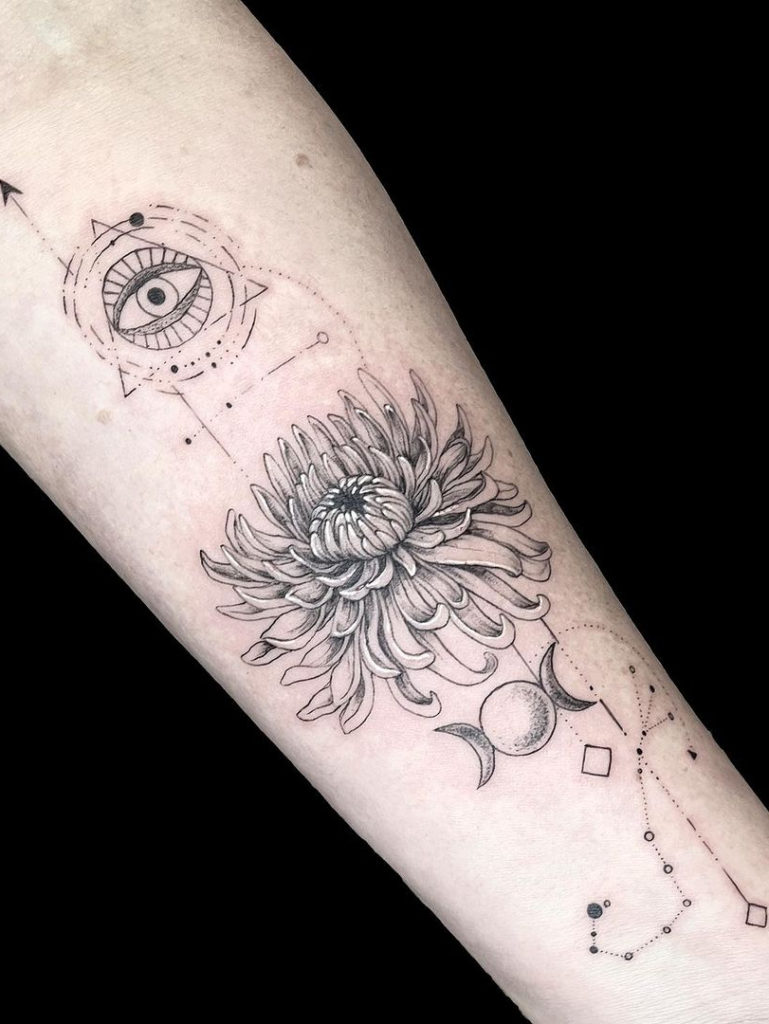
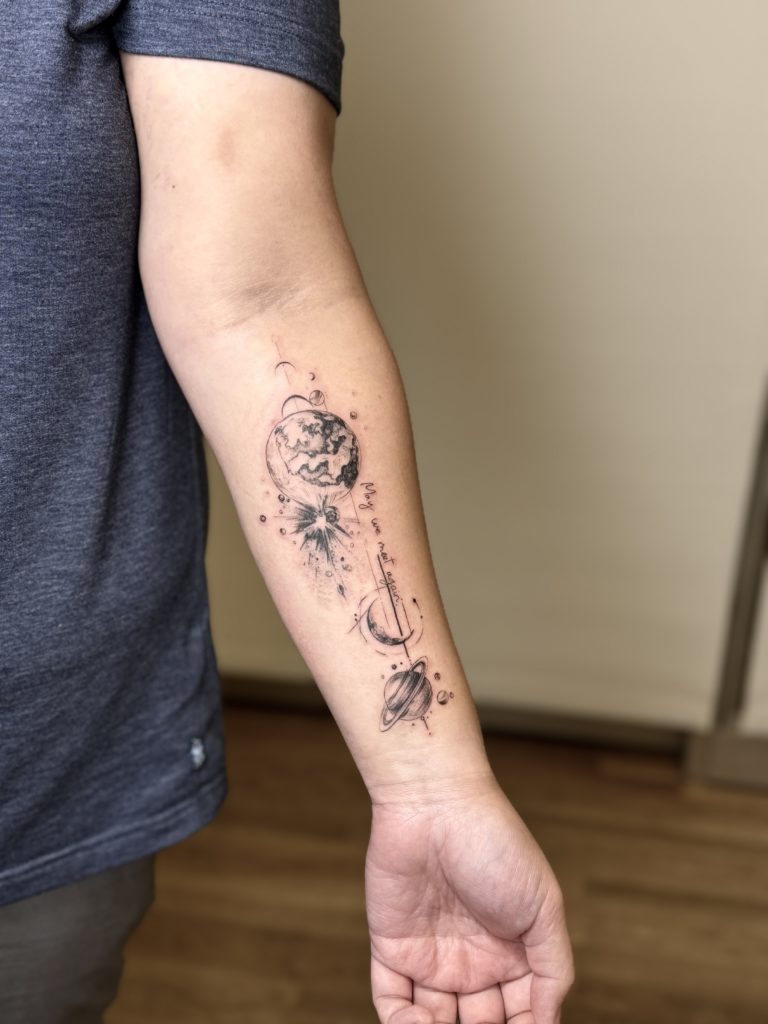
Works by Zezi
- Check reviews and ask around
Sometimes Google reviews from clients can say more about a possible mentor than they want to show. “I believe that if they treat clients poorly, they are unlikely to be willing to teach you,” says Zezi.
It’s also helpful to ask other artists about their experiences, so talk to those who worked with the mentor or apprenticed under them. “Ask someone who has left the studio for their opinion. Current employees might not feel comfortable sharing negative or truthful insights about their mentor or boss.”
- Watch for red flags
Be aware of red flags, for example, poor client treatment is a major warning sign. “Try to find out why clients are upset,” Zezi suggests. Meeting the mentor in person can also provide valuable insights into their personality and teaching style.
How to Present Yourself and Your Portfolios Effectively?
Presenting yourself and your tattoo portfolio effectively is key to landing a good apprenticeship.
Your portfolio should include at least 4 to 6 realistic observational drawings, as these drawings are the foundation of any style, whether traditional or neo-traditional. “Observational skills are highly important, if you can’t create a drawing, you won’t be able to tattoo it,” she says.
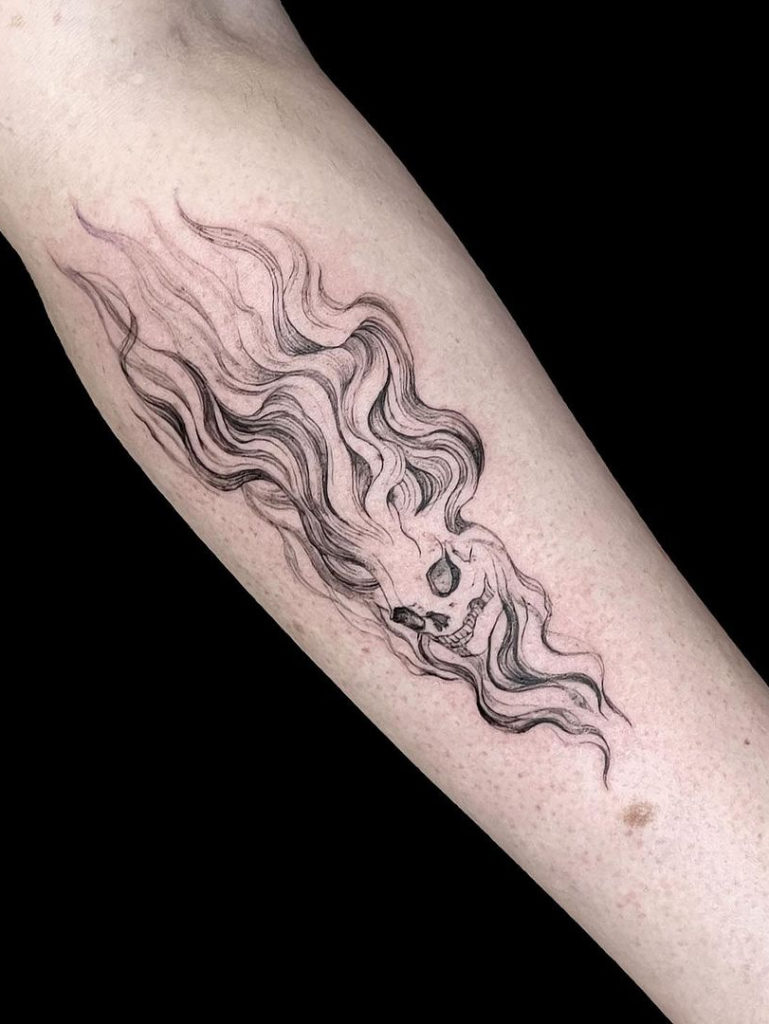
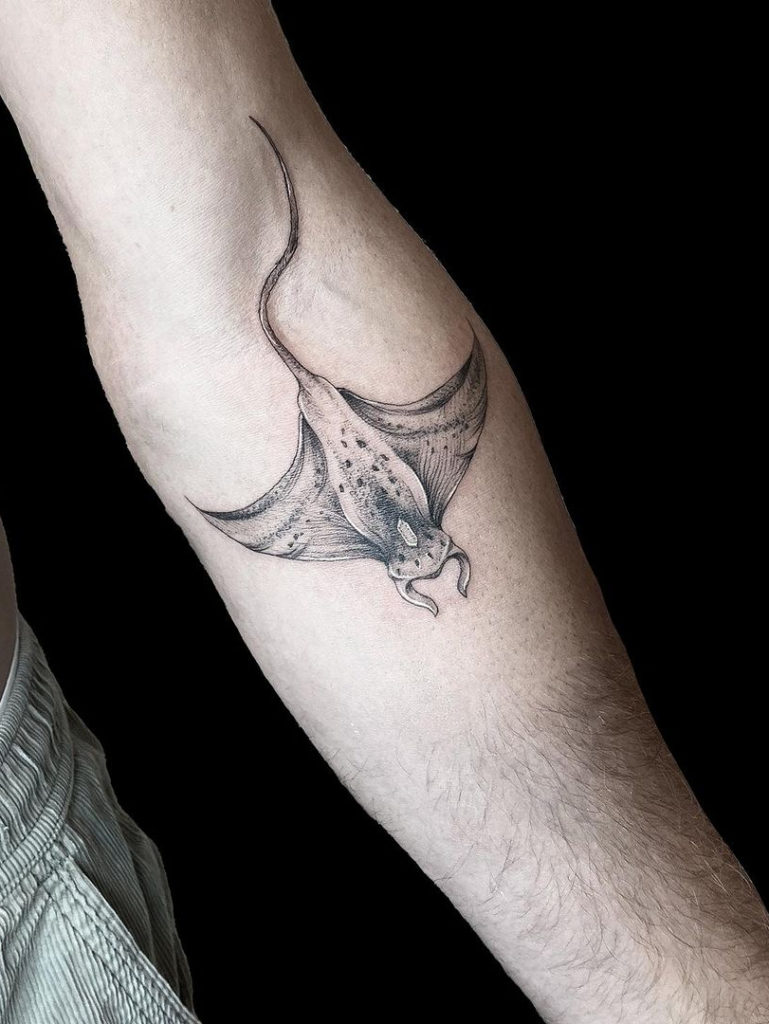
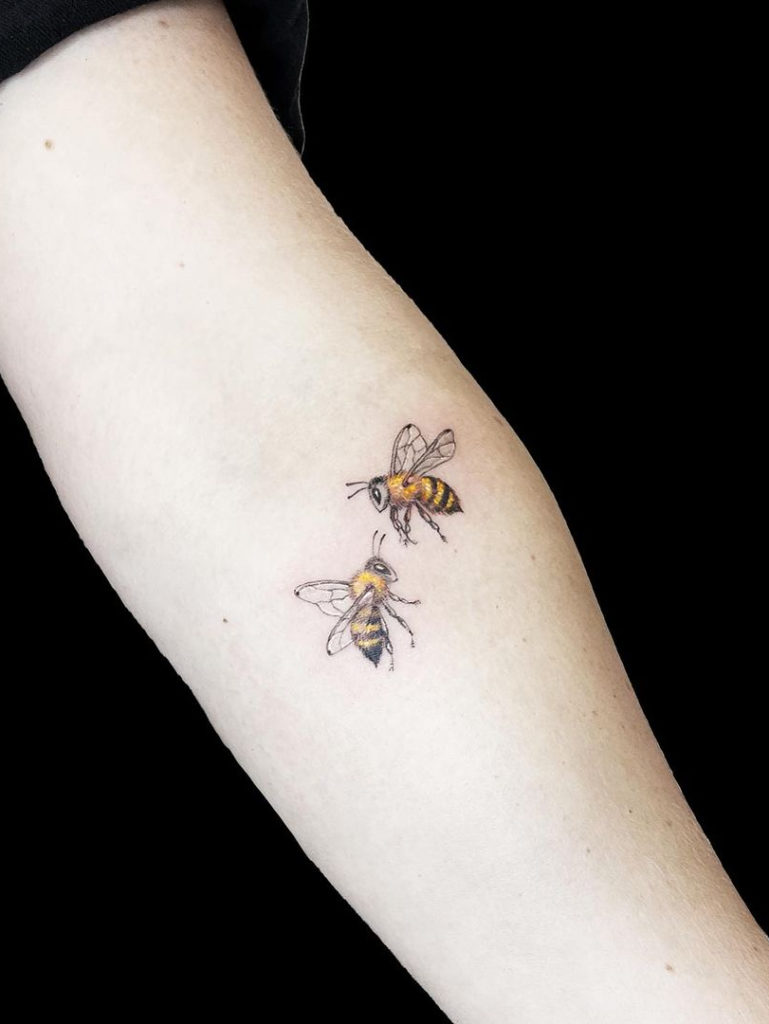
Works by Zezi
Including flash designs in your portfolio is also essential. Zezi suggests trying at least two or three different styles. “It’s not about the super simple $50 flash,” she explains. Your flash designs should be original and show your artistic taste. Avoid clichés like common butterfly designs, as mentors want to see your potential.
Organization is another crucial aspect. Put all your work in one PDF and arrange it logically, because this shows professionalism. “If I didn’t see their effort before they came here, I wouldn’t even offer them an interview,” says Zezi. Additionally, it’s better not to include finished tattoos unless they are exceptional.
“One important thing about their portfolio is not to show finished tattoos. I had one applicant who showed some of her completed tattoos, which, as a beginner, were understandably not very good. Additionally, I worry that she may have already picked up bad habits from being self-taught or from others. I prefer teaching someone from scratch, so I don’t want to see finished tattoos in the portfolio.”
— Zezi to InkMatch
How to Make the Most of Your Apprenticeship?
For a busy tattoo artist like Zezi, it’s always important to leave room in the schedule for communication with students. Despite the large number of clients, she always finds time to give advice, help with a drawing, or encouragement. If your mentor has a similar teaching style, their insights on how to make the most of communication will be very useful to you.
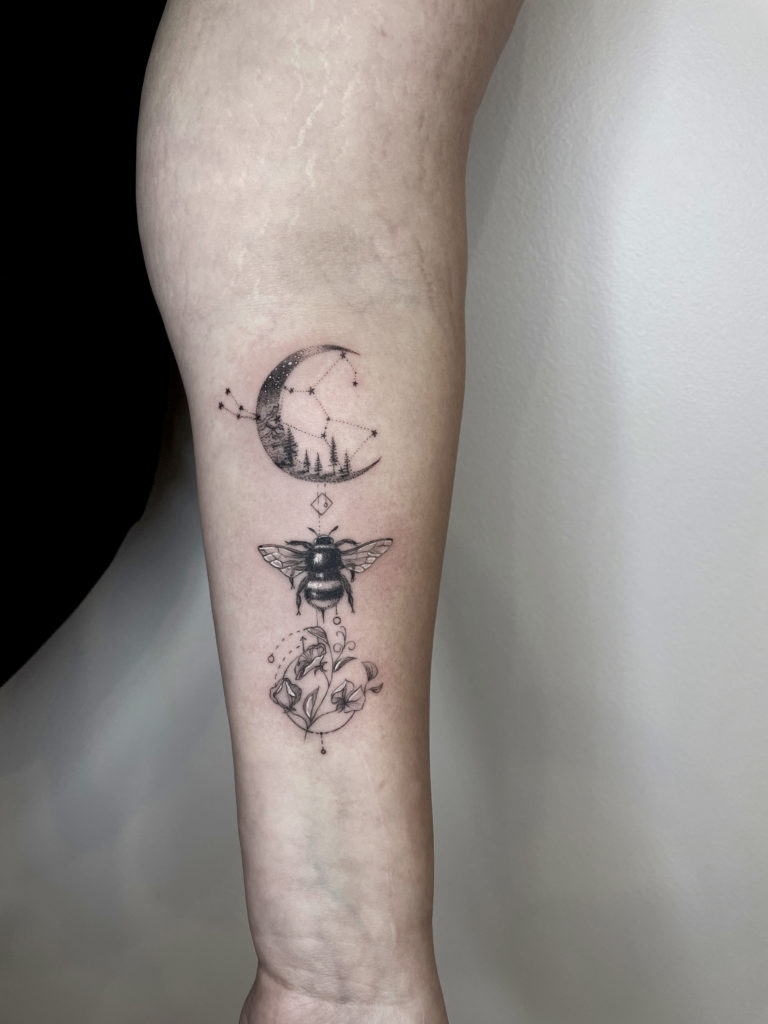
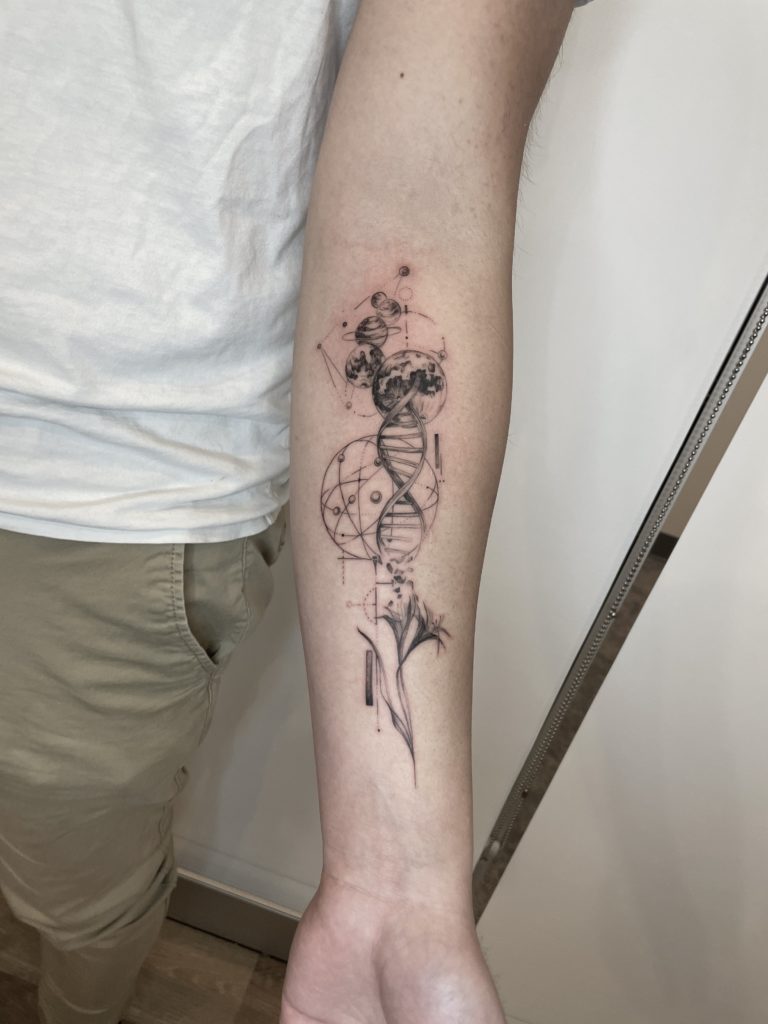
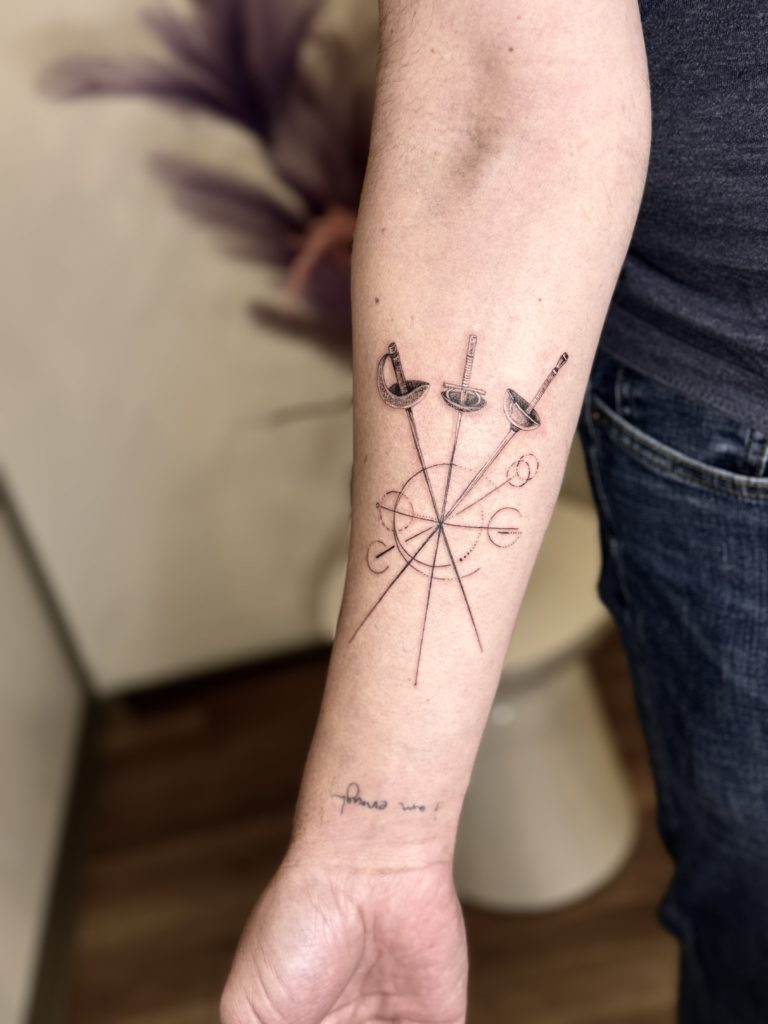
Works by Zezi
First and foremost, schedule regular check-ins with your mentor. “I set up a certain time for my apprentice,” says Zezi. Even if it’s just 15 minutes a day, it’s important. “I always sit down with them, demonstrate quickly, and ensure their techniques are correct. At the end of the day, I spend about 5 minutes checking in with them to see how they’re doing. I want to make sure they are getting their money’s worth.”
Whenever you reach out to a mentor, have a list of things ready. This makes the time you spend with your mentor more efficient. “Feel free to ask other artists for help if you’re having difficulty with something. Building connections with fellow artists can be very beneficial.”
In some apprenticeships, you might have to do some free labor. “It’s normal to do more cleaning and flash work at first.” However, if after three to four months you’re not learning about tattoos or drawing, talk to your mentor about it.
“Some shops use apprenticeships as a source of free labor, so it’s important to ask around and do your research. For example, the first month might involve getting familiar with the shop and working on more basic tasks like flash designs,” suggests Zezi. Discuss your goals with the mentor and make sure they are feasible.
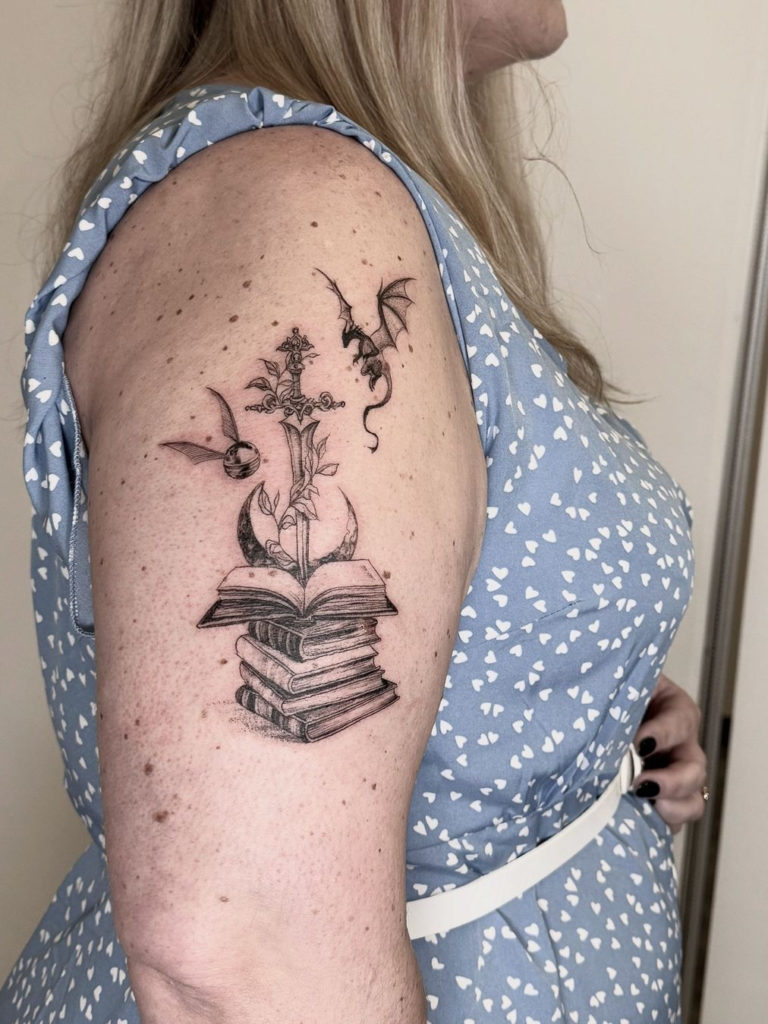
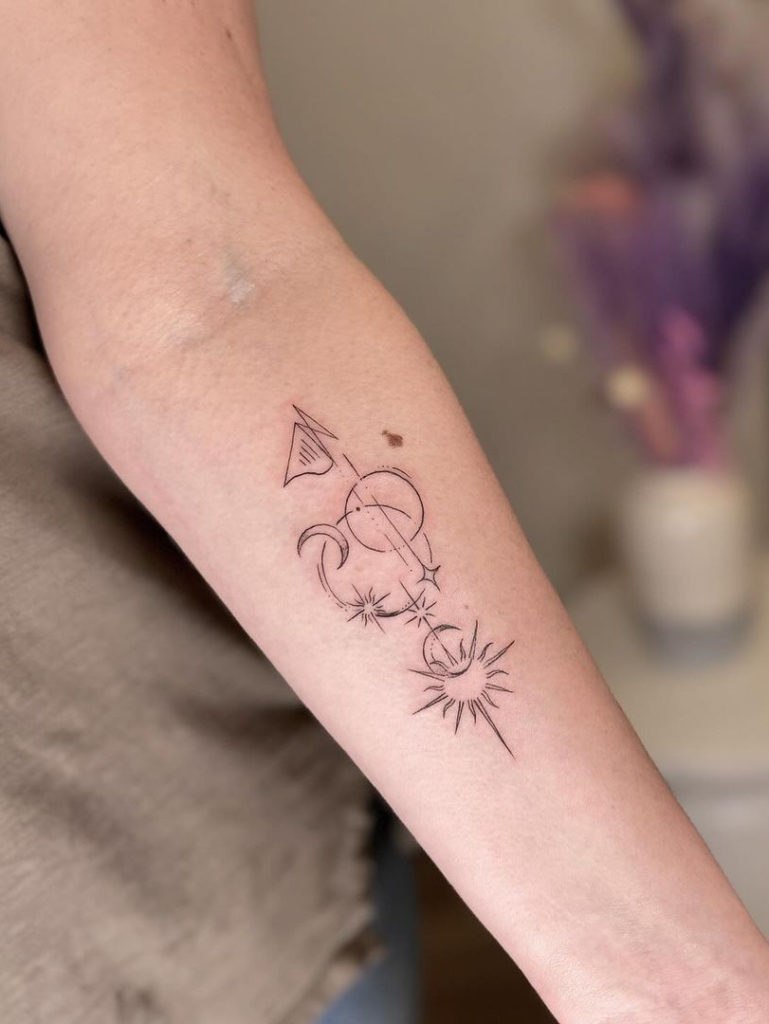
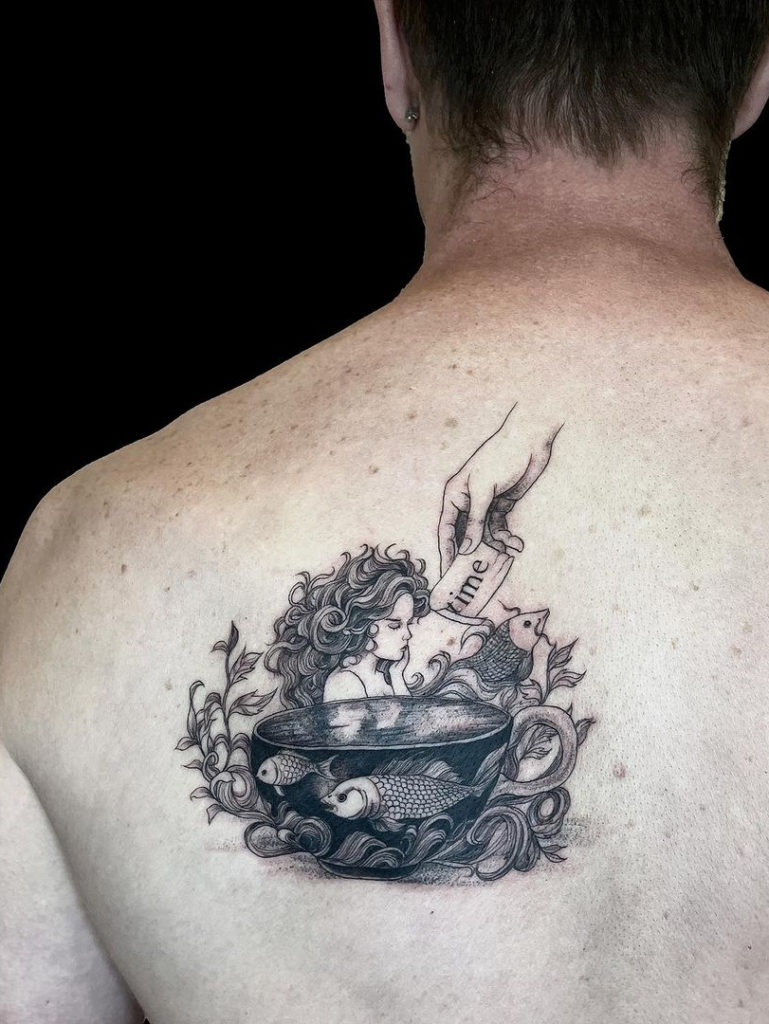
Works by Zezi
Mentor-Mentee communication
For your training to be effective, it is important to not only approach it responsibly but also to establish good communication with your mentor.
Understand your mentor’s style by observing and learning when they are most open to discussing and giving feedback. “For a successful apprenticeship, it’s important to understand the best times to engage with your mentor. Be observant and identify when the mentor is more open to discussing and giving feedback, such as during their lunchtime. Avoid approaching them when they are in a bad mood or have just dealt with a challenging client,” suggests Zezi.
If your mentor does not support your preferred tattoo style, you need to handle it carefully. According to Zezi, “Ideally, the mentor’s style should be something you want to learn or develop in the future.” However, finding a perfect match can be challenging, especially in smaller cities.
Zezi also mentions the importance of being flexible. Your style might evolve over time, so be open to learning different techniques. If you want to explore a different style, ask your mentor for feedback and guidance. “Is it possible to spend a little more time on this style?” is a good question to ask.
Effective communication with your mentor involves showing respect for their expertise, while also expressing your interests and goals. By doing so, you can create a productive and supportive learning environment.
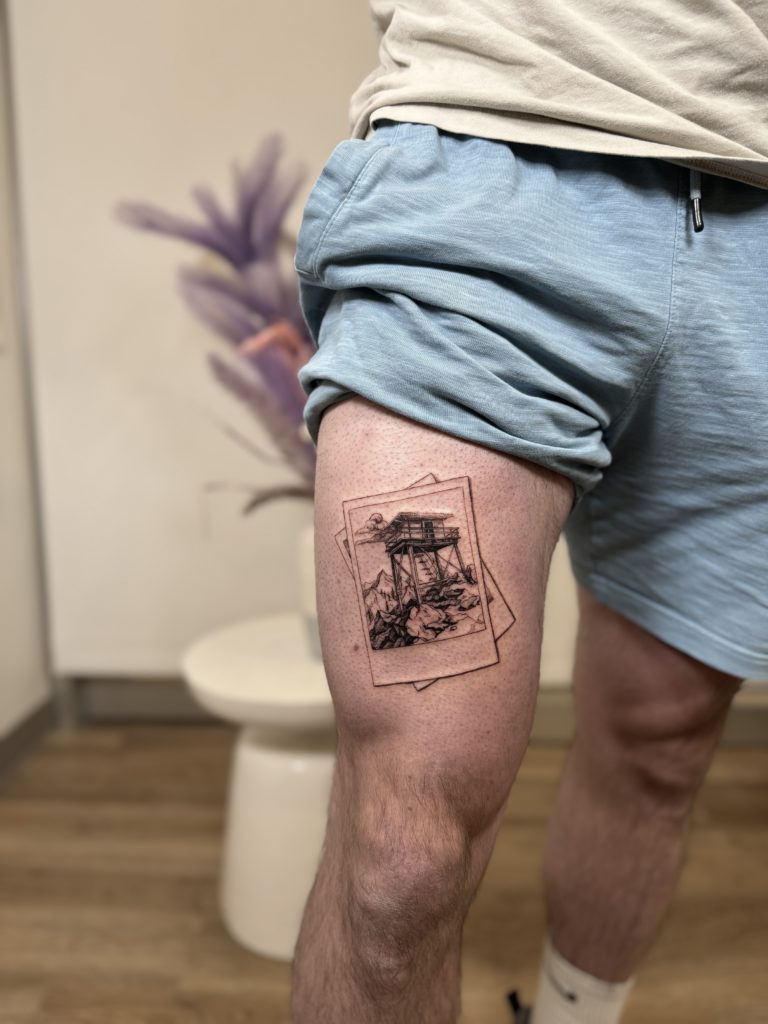
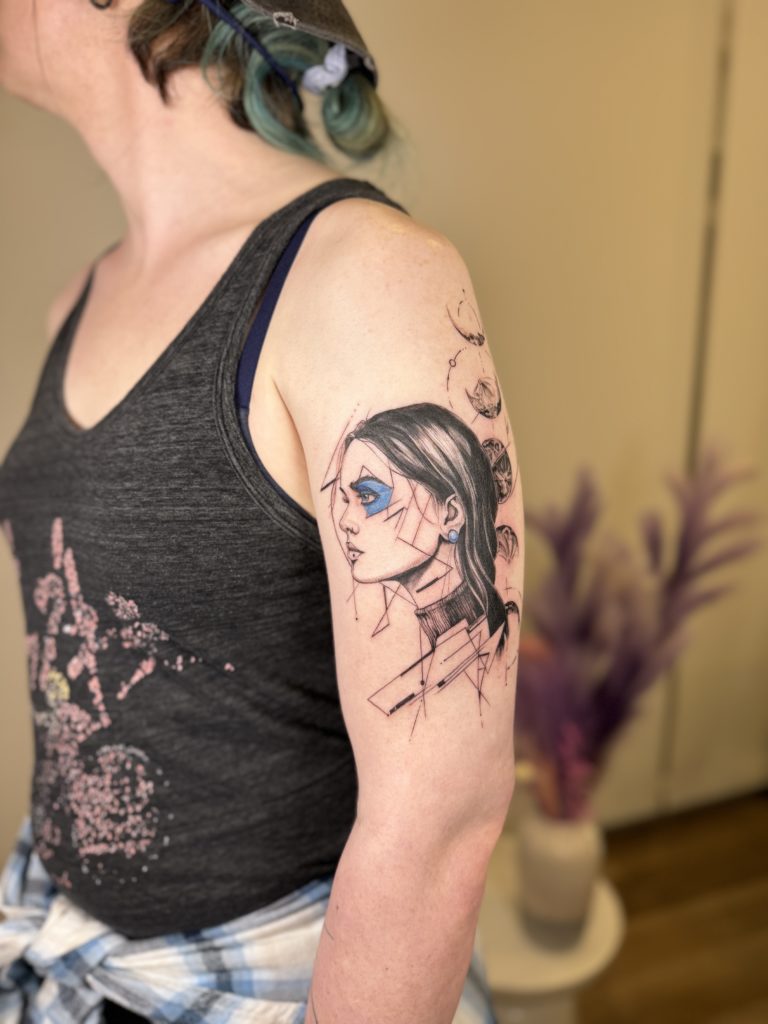
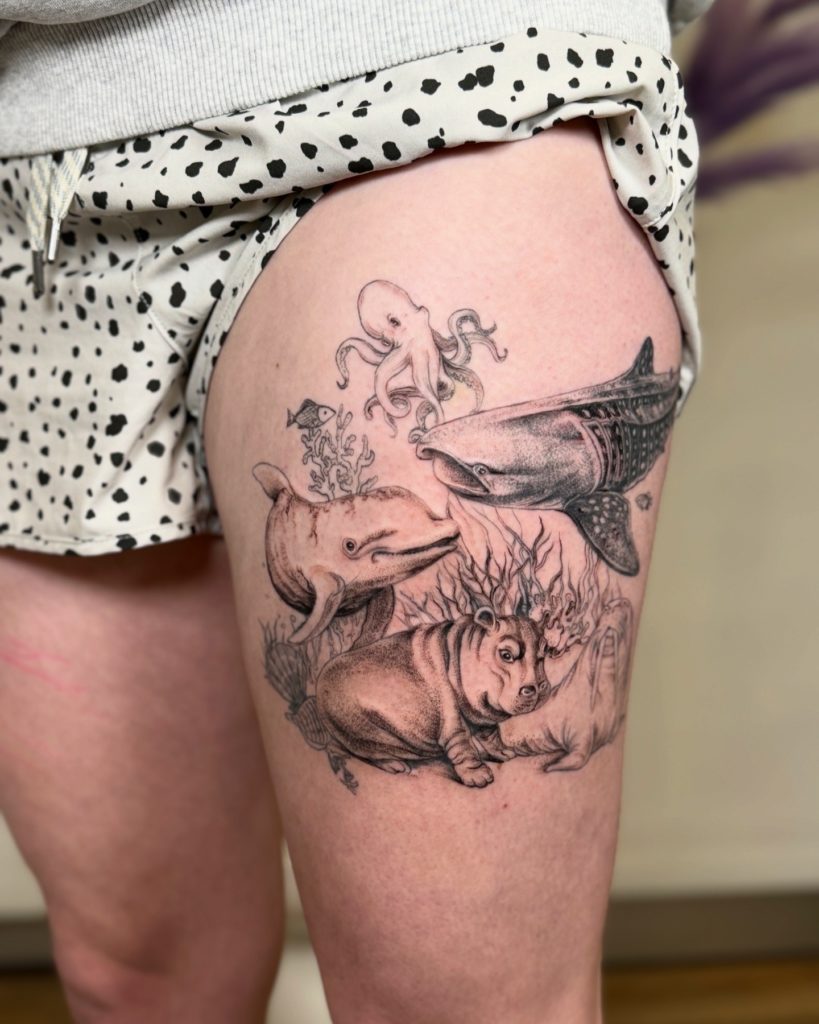
Works by Zezi
Preparing for Your First Tattoo
The first tattoo experience can be nerve-wracking, but all apprentices are waiting for it with excitement. Although different mentors’ approaches can vary, there is a common view that it’s important to be well-prepared and confident.
“My apprentices already see how I set things up and follow the clear procedures. They observe the hygiene station setup. This way, they understand everything that happens before they handle their first client,” she explains.
Zezi also suggests that apprentices should practice tattooing on themselves or fellow apprentices before working on clients. “You can tattoo yourself or each other in the studio before you take someone else from outside,” she advises. This hands-on experience helps build confidence and familiarity with the process.
Having a mentor present during your first tattoo seems necessary at first glance, but it’s actually a controversial point. It’s also important to have support available, even if your mentor can’t be there the entire time.
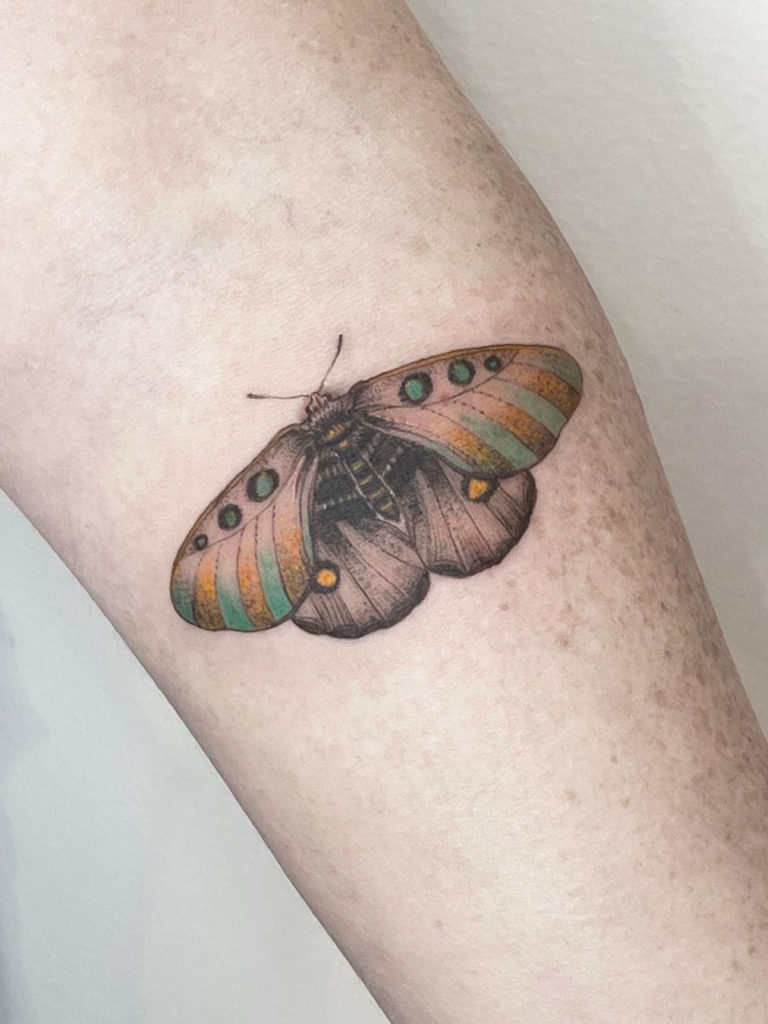
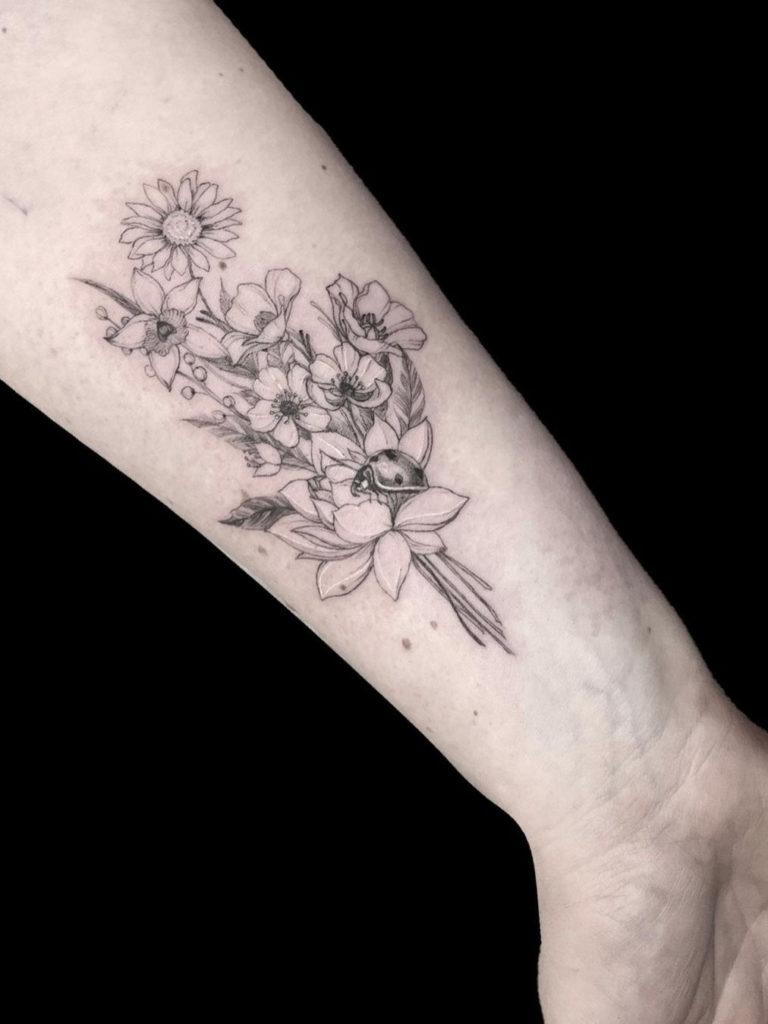
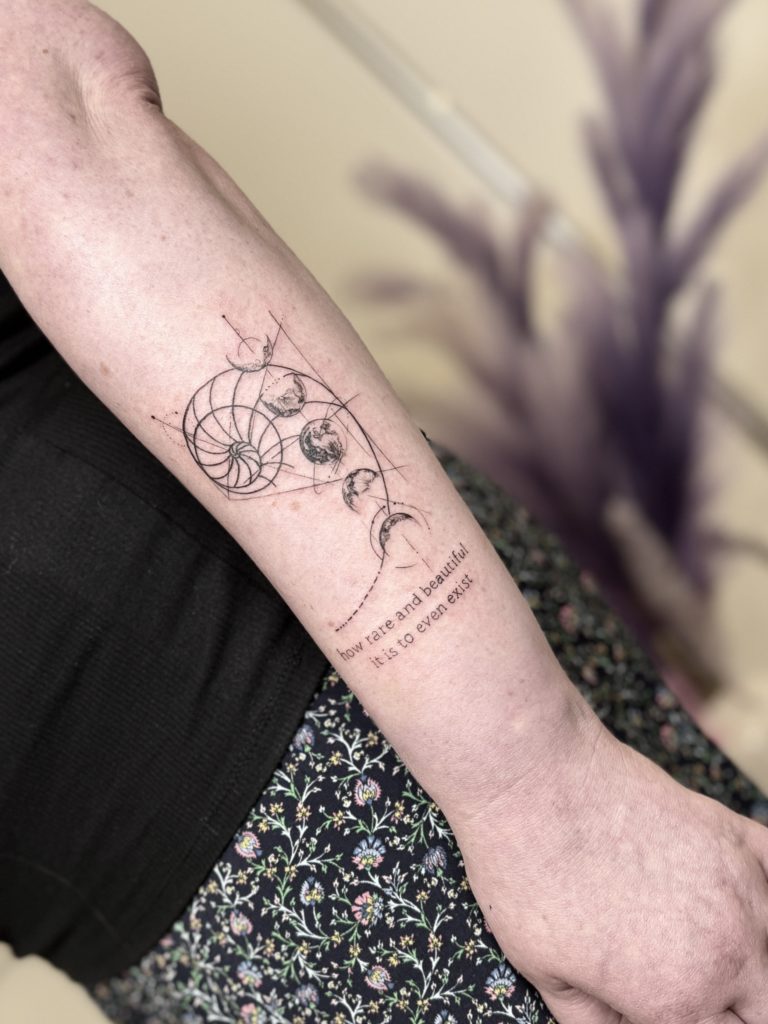
Works by Zezi
“I honestly think there are ups and downs. For instance, I know one apprentice who gets nervous when someone hovers to see what’s happening. I teach them differently: if they need help, they should feel free to stop me anytime. However, sometimes it’s beneficial to have another artist nearby, as mentors can be intimidating.”
— Zezi to InkMatch
Finally, remember to take a deep breath and try to enjoy the experience. “Honestly, the first tattoo might not be successful because you’re nervous. It’s a nerve-wracking experience. I still remember my first time — I was sweating, and my hands were shaking,” Zezi recalls. But with the right preparation and support, your first tattoo will become a memorable milestone.
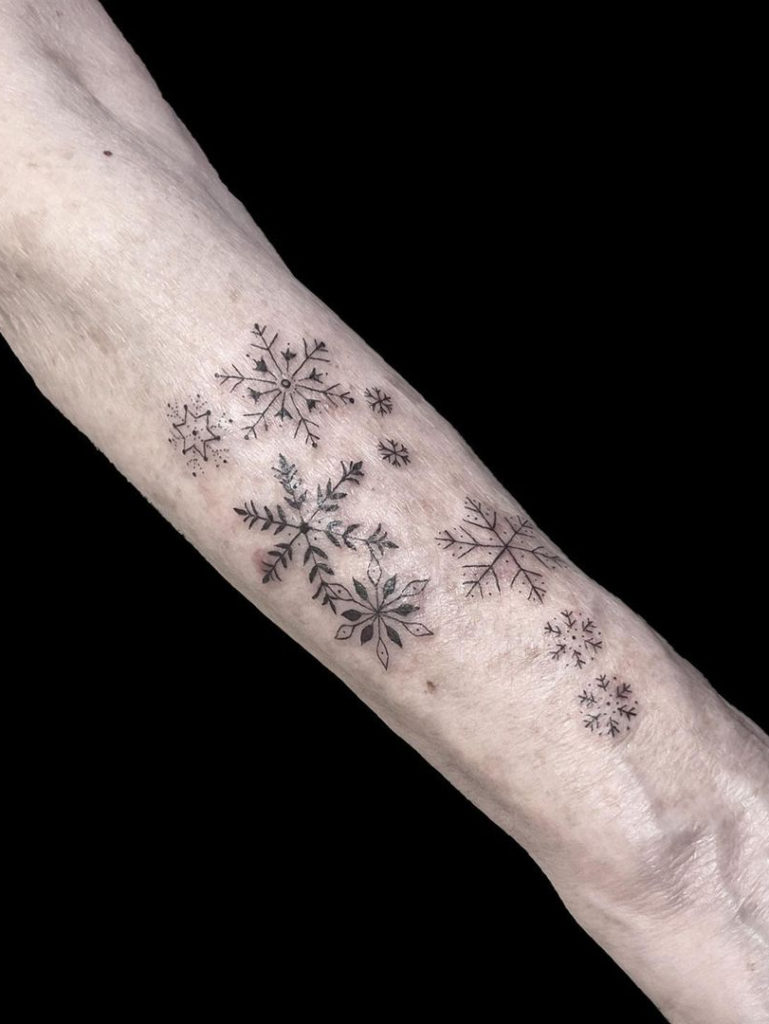
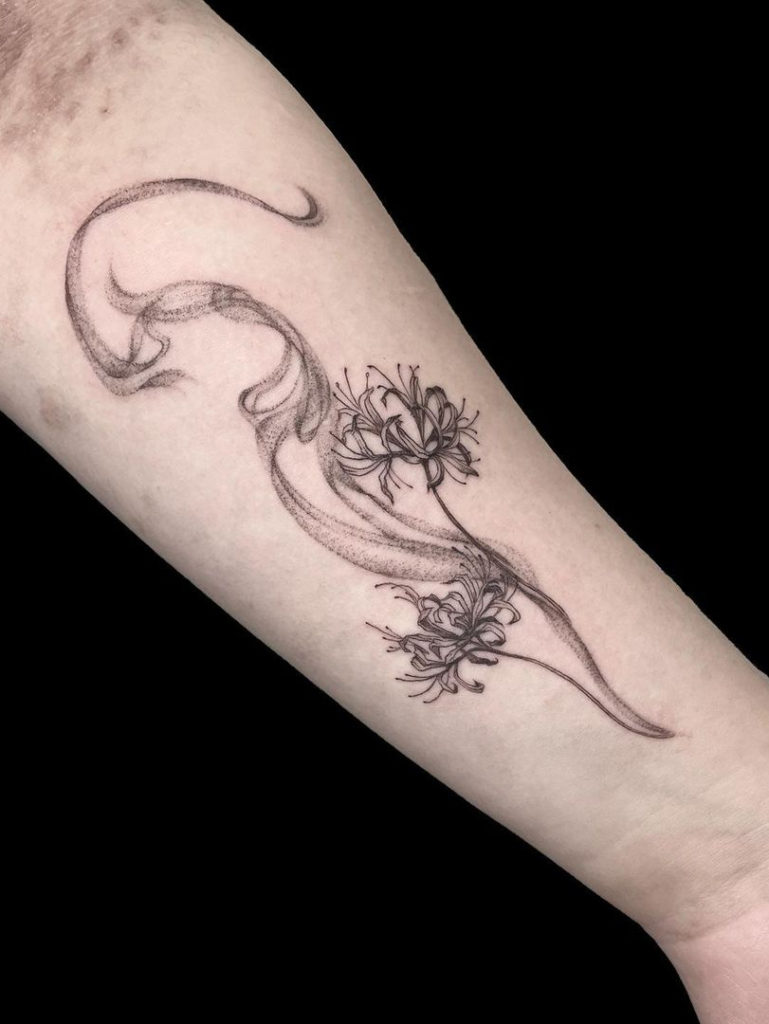
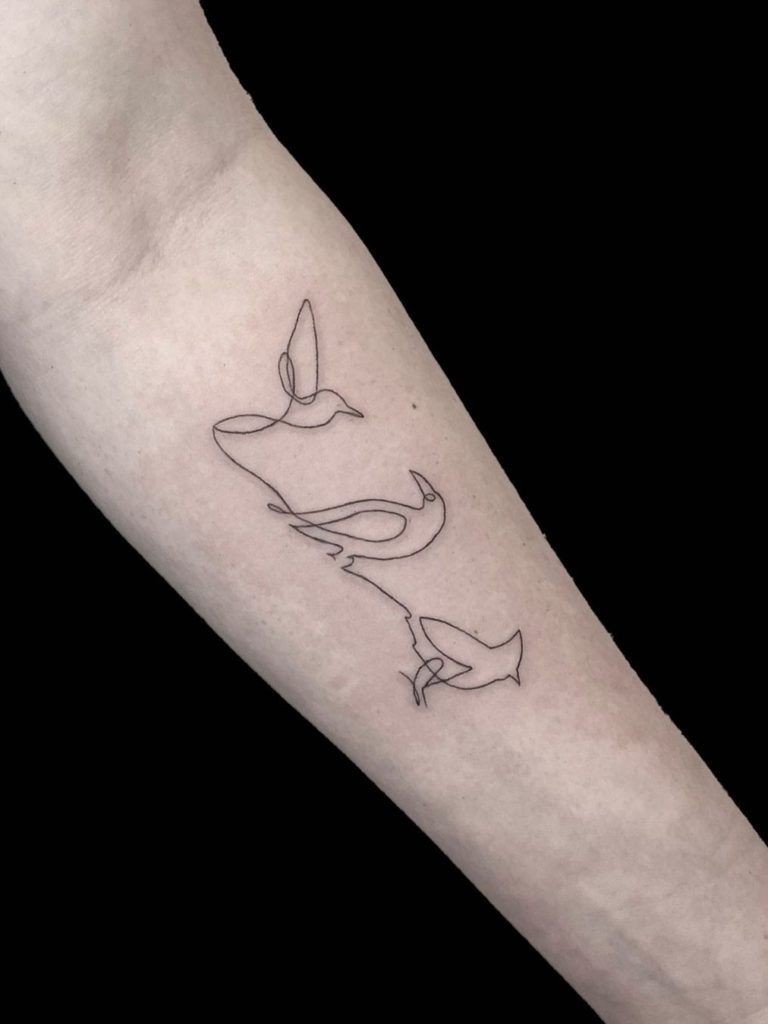
Works by Zezi
Summary
A tattoo apprenticeship is an important step in every artist’s career, and we are very grateful to Zezi for sharing with us her experience as a tattoo artist and mentor. We’ve got some very valuable insights and advice for aspiring tattoo artists worth checking out.
Zezi explained how she balances her work with her mentoring responsibilities, and how she ensures her apprentices receive the best possible training. Her story is inspiring and a must-read for anyone interested in tattoos.
FAQ
🤔 Is a Tattoo Apprenticeship Worth It?
Definitely! A tattoo apprenticeship gives practical experience, mentoring from experienced artists, and an understanding of hygiene and safety standards. It also helps to build a portfolio and network, which can be essential for finding clients.
✍ What Do Tattoo Apprentices Do?
Tattoo apprentices help experienced artists clean and set up workstations, sterilize equipment, and organize supplies. They also practice drawing and tattooing on artificial skin. Over time, they gradually take on more complex tasks and begin tattooing clients under supervision.
😨 Should You Let a Tattoo Apprentice Tattoo You?
Apprentice tattoo artists are only allowed to work with clients when the tutor is confident in their skills so that the tattoo will be safe. They also often charge less for the work, making this a budget-friendly option. But it’s important to keep in mind that they are not as experienced as tattoo artists.
📚 What to Know Before Starting a Tattoo Apprenticeship?
You should inquire about your supposed mentor’s work, approach to training, and familiarize yourself with the training program. In addition, if you learn the theoretical basis of tattooing, it will be a big advantage at the interview.
⌛ How Long Is a Tattoo Apprenticeship?
An apprenticeship in a tattoo parlor usually lasts 1–2 years, but the duration can vary depending on the mentor and the progress of the apprentice. In the end, the goal is to gain enough experience to tattoo clients independently and confidently.
